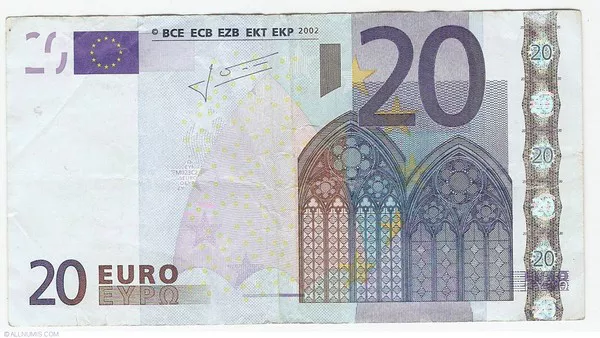The European Central Bank (ECB) plays a crucial role in shaping the economic landscape of the Eurozone. One of its key tools in achieving its monetary policy goals is the manipulation of interest rates. For quite some time, there has been a growing interest in the question, “When will ECB raise interest rates?” This article aims to provide a comprehensive guide to understanding the factors and considerations that influence the ECB’s decisions regarding interest rates.
The Role of the ECB
Before delving into the intricacies of when the ECB will raise interest rates, it is essential to grasp the central bank‘s role and responsibilities.
The ECB is tasked with maintaining price stability in the Eurozone, primarily by targeting an inflation rate of below, but close to, 2%. They aim to do this by adjusting interest rates, among other measures.
When inflation is too high, they might raise rates to cool down economic activity, and when it is too low, they may lower rates to stimulate economic growth.
Current Interest Rate Environment
To understand when the ECB will raise interest rates, one must consider the current interest rate environment. As of the most recent data available, the ECB’s main refinancing rate stands at a historic low of 0%. This rate, often referred to as the policy or base rate, influences the interest rates at which banks lend to each other and, subsequently, the rates at which they lend to consumers and businesses. The deposit rate, the interest rate banks earn on their deposits at the ECB, is even lower, currently standing at -0.5%.
Inflation Dynamics
Inflation is a central determinant of the ECB’s interest rate policy. A key factor to monitor is the inflation rate in the Eurozone. As previously mentioned, the ECB’s target is to keep inflation below, but close to, 2%.
Therefore, when inflation starts to approach or exceed this target, it becomes more likely that the ECB will consider raising interest rates.
Economic Growth and Employment
In addition to inflation, the ECB also pays close attention to the broader economic environment. Economic growth and employment levels are significant indicators of the region’s financial health. When the Eurozone experiences robust economic growth and low unemployment rates, the ECB may consider raising interest rates to prevent overheating and inflation from spiraling out of control.
Market Expectations and Forward Guidance
Market expectations play a crucial role in the ECB’s interest rate decisions. The central bank often provides forward guidance, which is a way of communicating its intentions to the markets and the public. If the ECB signals that it plans to raise interest rates in the near future, it can impact market expectations and, in turn, influence interest rates in the market.
Monetary Policy Tools
Understanding the ECB’s monetary policy tools is essential to grasp when they might raise interest rates. Apart from the policy rate, the ECB employs other tools such as quantitative easing, targeted longer-term refinancing operations (TLTROs), and asset purchases. These tools are used to influence the money supply and credit conditions in the Eurozone. When the ECB starts unwinding these measures, it could be a signal that interest rate hikes are on the horizon.
External Factors
While the ECB primarily focuses on the Eurozone’s economic indicators, it is not isolated from global events. External factors, such as international trade tensions, geopolitical instability, or global economic conditions, can also impact the ECB’s decisions regarding interest rates. In times of heightened global uncertainty, the ECB may choose to delay or adjust its interest rate decisions.
Unconventional Policy Measures
In the aftermath of the 2008 financial crisis, the ECB, like many central banks, resorted to unconventional policy measures, including negative interest rates and large-scale asset purchases. The persistence of these unconventional policies adds complexity to the question of when the ECB will raise interest rates. The central bank must carefully plan and communicate its exit strategy from these measures to avoid market disruptions.
Institutional Factors
The ECB operates under a complex governance structure that includes the Executive Board and the Governing Council. Decisions regarding interest rates are made collectively. Therefore, when assessing the timing of interest rate hikes, it is crucial to consider the views and dynamics within these institutions. Different members may have varying opinions on when the ECB should raise interest rates.
Communication and Transparency
The ECB is committed to transparency and clear communication. They release regular statements, hold press conferences, and publish meeting minutes to provide insight into their thinking and decisions.
Monitoring these communications can offer valuable clues about when the ECB may raise interest rates.
Conclusion
The question of “when will ECB raise interest rates” is one that economists, investors, and the general public closely follow. It is a decision that has far-reaching implications for the Eurozone’s economic landscape. In summary, several factors influence the ECB’s timing for raising interest rates, including inflation dynamics, economic growth, market expectations, monetary policy tools, external factors, unconventional policy measures, institutional dynamics, and communication. Careful observation and analysis of these factors are key to making informed predictions about the ECB’s future interest rate moves. While the exact timing remains uncertain, staying informed about these factors will help you navigate the complex world of monetary policy in the Eurozone.
Related Topics:
Can the ECB be Truly Independent? Should It Be?
A Critical Examination of ECB Raising Interest Rates
Why the ECB Should Not Hike Interest Rates



























